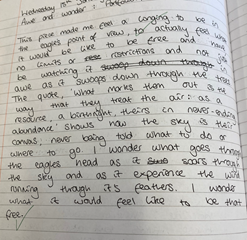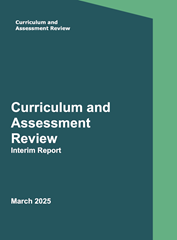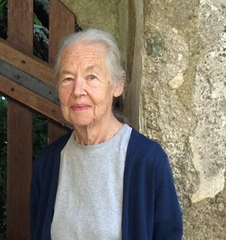The phrase ‘cultural capital’ is everywhere these days. In 2013 the then Education Secretary Michael Gove famously quoted Gramsci, saying
The accumulation of cultural capital – the acquisition of knowledge – is the key to social mobility.
He went on to say,
you will find children learning to read using traditional phonic methods, times tables and poetry learnt by heart, grammar and spelling rigorously policed, the narrative of British history properly taught. And on that foundation those children then move to schools like Eton and Westminster – where the medieval cloisters connect seamlessly to the corridors of power.
It’s interesting that, in this earlier use of the term, there is a conflation between the idea of cultural capital and a traditional education of the sort one might receive at the great public schools. Cultural capital is, seemingly, intrinsically bound up with phonics, times tables, rigorous attention to language, chronological British history and so on.
The term has gone on to be used as shorthand for offering working class children the kind of knowledge that will open doors for them. Often it is presented in terms of its absence, as a gap, a deficit, or something that teachers are failing to give to students. Usually, working class children are perceived as ‘lacking’ it.
Now, in the new Inspection Handbook produced by Ofsted as part of its new Education Inspection Framework, cultural capital is given a whole section of its own, with this statement:
As part of making the judgement about the quality of education, inspectors will consider the extent to which schools are equipping pupils with the knowledge and cultural capital that they need to succeed in life. Ofsted’s understanding of this knowledge and cultural capital matches that found in the aims of the National Curriculum.
If it does match the National Curriculum aims, one has to ask oneself why Ofsted couldn’t simply quote them, so that we all know exactly where we stand. For cultural capital is a complex and slippery term, meaning different things to different people, and harder to pin down in practice than to glibly pronounce on.
What follows are some thoughts about this complexity and slipperiness that I hope will make people (and Ofsted itself) think a bit harder about whether it really is a helpful concept upon which to base the inspection of our schools.
First, where did it come from? The sociologist, Pierre Bourdieu, himself of working-class origins and a Marxist, invented the term to describe all those advantages that accrue to people of a particular class that have nothing to do with money and everything to do with social status. Routledgesoc.com has a very simple and succinct account of what cultural capital meant for Bourdieu (with the key passage identified by me in bold):
While he didn’t consider himself a Marxist sociologist, the theories of Karl Marx heavily influenced Bourdieu’s thinking. Marx’s influence is perhaps most evident in Bourdieu’s theory of cultural capital. Like Marx, Bourdieu argued that capital formed the foundation of social life and dictated one’s position within the social order. For Bourdieu and Marx both, the more capital one has, the more powerful a position one occupies in social life. However, Bourdieu extended Marx’s idea of capital beyond the economic and into the more symbolic realm of culture.
Bourdieu’s concept of cultural capital refers to the collection of symbolic elements such as skills, tastes, posture, clothing, mannerisms, material belongings, credentials, etc. that one acquires through being part of a particular social class. Sharing similar forms of cultural capital with others—the same taste in movies, for example, or a degree from an Ivy League School—creates a sense of collective identity and group position (“people like us”). But Bourdieu also points out that cultural capital is a major source of social inequality. Certain forms of cultural capital are valued over others, and can help or hinder one’s social mobility just as much as income or wealth.
According to Bourdieu, cultural capital comes in three forms—embodied, objectified, and institutionalized. One’s accent or dialect is an example of embodied cultural capital, while a luxury car or record collection are examples of cultural capital in its objectified state. In its institutionalized form, cultural capital refers to credentials and qualifications such as degrees or titles that symbolize cultural competence and authority.
So for Bourdieu, cultural capital is everything that you learn that signifies for others that you are of a particular class. We know how important this panoply of signifiers is, when we hear about students attending Oxbridge interviews and feeling alienated, out of their depth, unsure of themselves and their own entitlement to even be there. But often that is more to do with those social aspects like dress, accent and confidence in particular social situations, and less to do with their curricular subject knowledge and certainly not to do with whether they have learned to read using phonics or not, or can recite their times tables.
One can ask the question of whether the narrower definition of cultural capital that has emerged in a post-Goveian era encapsulates the kind of thing that really does disadvantage students. And then, even if one assumes that there are elements of ‘knowledge’ that furnish one with cultural capital, it still remains to ask which kinds of knowledge-lack genuinely put people at a disadvantage and which are of less value. And finally, even if we can agree that some things are so important that they are indispensable and must be taught, one can go on to ask the question about how best to teach them, and in what quantity and at what point.
So here are are a few more thoughts on those three inter-related questions.
The first – does the narrow ‘knowledge’ definition of cultural capital really get to the heart of what disadvantages some students? University interviews are a crunch moment when students’ supposed cultural capital is tested. Here’s what the Cambridge University website says about its interviews:
What will I be asked?
Interviews are discussion-based, predominantly academic and subject-related, so you'll be asked questions:
-
relevant to the course you've applied for
-
about the information you provided in your written application
In all subjects, we're looking for informed enthusiasm and an ability to think independently about your subject.
You'll probably find some of the questions quite challenging. They're designed to encourage you to think for yourself and develop an argument or tackle a problem. Don't panic if you don't immediately have an answer to a question.
Remember:
-
interviewers want to find out how you think and apply your current knowledge, how well you can expand on and apply your existing knowledge to unfamiliar problems rather than how much you know.
-
very often there are no right or wrong answers to the questions asked. It's the process of reaching your answer that's generally of more significance than the answer itself.
-
don't be afraid to consider new ideas but if you don't understand something, say so and feel free to ask for clarification at any point if you need it.
-
answer the questions in your own way, the interviewers want to hear what you have to say about your subject; don't just say what you think the interviewers want you to say or what your teachers or others would want you to say.
The emphasis here is not on ‘what you know’ but rather on quality of thinking, confidence and approach to knowledge, a kind of proof of ‘know-how’ in the subject rather than of any specific content. Here, as in other university interviews, your cultural capital comes from your confident ability to engage in academic enquiry and discussion. On this basis, developing all students’ cultural capital should involve masses of opportunities for discussion, debate, exploration of ideas, independent responses to new material, individual research and development of own lines of enquiry and so on – a very different kind of emphasis to that which foregrounds particular items of knowledge as being of overriding value.
Second, if there were some knowledge that might put you at a disadvantage, what might that be? Well, in the world out there, as an adult, it seems reasonably uncontroversial to say that, for British-educated people, never having read or seen a single play by Shakespeare would make you seem poorly educated. Shakespeare’s position in our national cultural life is beyond dispute. In all the time I’ve been teaching, no English teacher I’ve come across has ever suggested not teaching at least one Shakespeare play. Shakespeare, however is the one writer for whom this seems to be the case. We might all agree about a broad and rich range of other reading in English, but I think we’d be hard pressed to agree that there are any other particular writers who must be studied. If you’ve read poems by Milton but not Blake, or Blake but not Keats, or Browning but not Tennyson, everyone will understand that choices have been made. Even at degree level there isn’t time to do everything. I studied Middle English Romances but not Milton, American literature but not Old Norse. Equally, I would argue, if you’ve read only the poets listed above but no contemporary poets winning prestigious national awards, or with best-selling collections, or on Twitter or Youtube, if you have no idea who any of the up and coming poets are, if you’ve never heard of Derek Walcott, or Sharon Olds or Billy Collins, if you never choose to read or listen to poetry yourself, if National Poetry Day passes you by, and you don’t know who Kate Tempest or Benjamin Zephaniah are, that might put you at a different, but possibly equal disadvantage, though that too is debatable. As adults, we can make our way in the world through our popular cultural interests as much as our high culture ones, by sharing a passion for the same football team or by our obsession with Strictly Come Dancing. Interestingly, again, coming back to the question of the university interview, John Mullan, Professor of English in the highly prestigious department at UCL, always advises students at our emagazine conferences that evidence of reading widely and with commitment is what they are looking for, rather than simply following a teacher’s prescriptions. It’s less important what you’re reading than the fact that you’re making interesting choices and that you're a keen reader.
In terms of English, the case is often made that there are other forms of knowledge, a broader ‘cultural capital’ without which the study of literary texts is impossible, or at the very least impoverished. It is presented as being essential ‘prior knowledge’. Someone arguing from this position would claim, for instance, that you can’t read many literary texts without knowing the Bible, knowing something about Greek and Roman myths and ancient civilisations and having a strong chronological grip on British history. The problem with this is that prior knowledge is infinite and of uncertain benefit. A few examples might reveal this.
First, the Bible. What exactly are you going to teach if you believe that many literary texts require a knowledge of the Bible? The whole Bible? Selected famous stories? The Old Testament? The New? Famous ‘gobbets’? You might teach all the famous stories but where would that leave you if you were teaching Chaucer’s ‘The Merchant’s Tale’ and might genuinely find it helpful to know something of the ‘Song of Solomon’. And what about Christina Rossetti, where knowledge of a few Psalms might help. Or ‘The Grapes of Wrath’, where a bit of Exodus might come in handy. As someone who grew up with scant knowledge of the Bible, and the New Testament in particular, I got a good degree at Oxford, reading many writers whose work was either religious or rooted in biblical language or narrative, by doing what all sensible people do – identifying that there was something I needed to know more about, and reading as much as I needed to know at that point. With Emily Dickinson, it was understanding about the American Civil War, the divisions in the Church more than the Bible and the way a woman’s writing was influenced by a woman’s life at the time. With American writers, it was American history, rather than British kings and queens, that I needed to have roughly mapped out for myself. And truthfully, as students of English really need to be told time and time again, knowing about things beyond the text is only helpful if they illuminate the text itself, and often much of that knowledge you need is there in the text itself.
In relation to this view of cultural capital for academic success, the other glaring issue is the fact that many texts studied at all levels in subject English are not ones that are illuminated by these iconic cultural items of knowledge. Oxford’s undergraduate modules include Postcolonial Literature, Writing Feminisms/Feminist Writing, Film Criticism and Afrofabulation. At Cambridge there is Postcolonial and Related Literatures and Contemporary Writing in English. At A Level, you might be studying The Kite Runner, God of Small Things, The Great Gatsby, Revolutionary Road, Atonement, Small Island, The Lonely Londoners, In Cold Blood, Beloved, A 1000 Splendid Suns, A Doll’s House, Dracula, The Reluctant Fundamentalist, The Bloody Chamber. None of these texts is dependent on knowledge of British kings and queens, Victorian London, the Bible or Greek myths. A passing knowledge of the story of Rostam and Sohrab, a reading of a fairy tale by the Brothers Grimm, some awareness of the relationship between the Caribbean and England in the Commonwealth, knowledge of the caste system or Hindu myths might be helpful for one or more of these books.
So, to recap on this last point, I’ve argued that cultural knowledge is almost without limit, that you can’t teach it all, that it depends on which texts you’re studying, that it doesn’t need to be exhaustive but just enough to illuminate the text, that many texts provide their own cultural knowledge – they are, in fact, the way in which students absorb that knowledge. If all of this is true, it has profound implications for how we teach this kind of knowledge. I’d advocate a ‘when it’s needed, along the way, light touch’ approach, along with giving students the judgement and tools to know when (and how) to find out more.
I’m not arguing against knowledge, nor against a broad and varied curriculum that includes a range of encounters with texts that are, in one way or another, culturally significant. But, as I hope I’ve suggested, the term cultural capital doesn’t seem to be a helpful one in deciding what these should be. Let’s stick rather, with the more uncontroversial National Curriculum rather than bandying about a term loosely that raises more problems than it answers.




